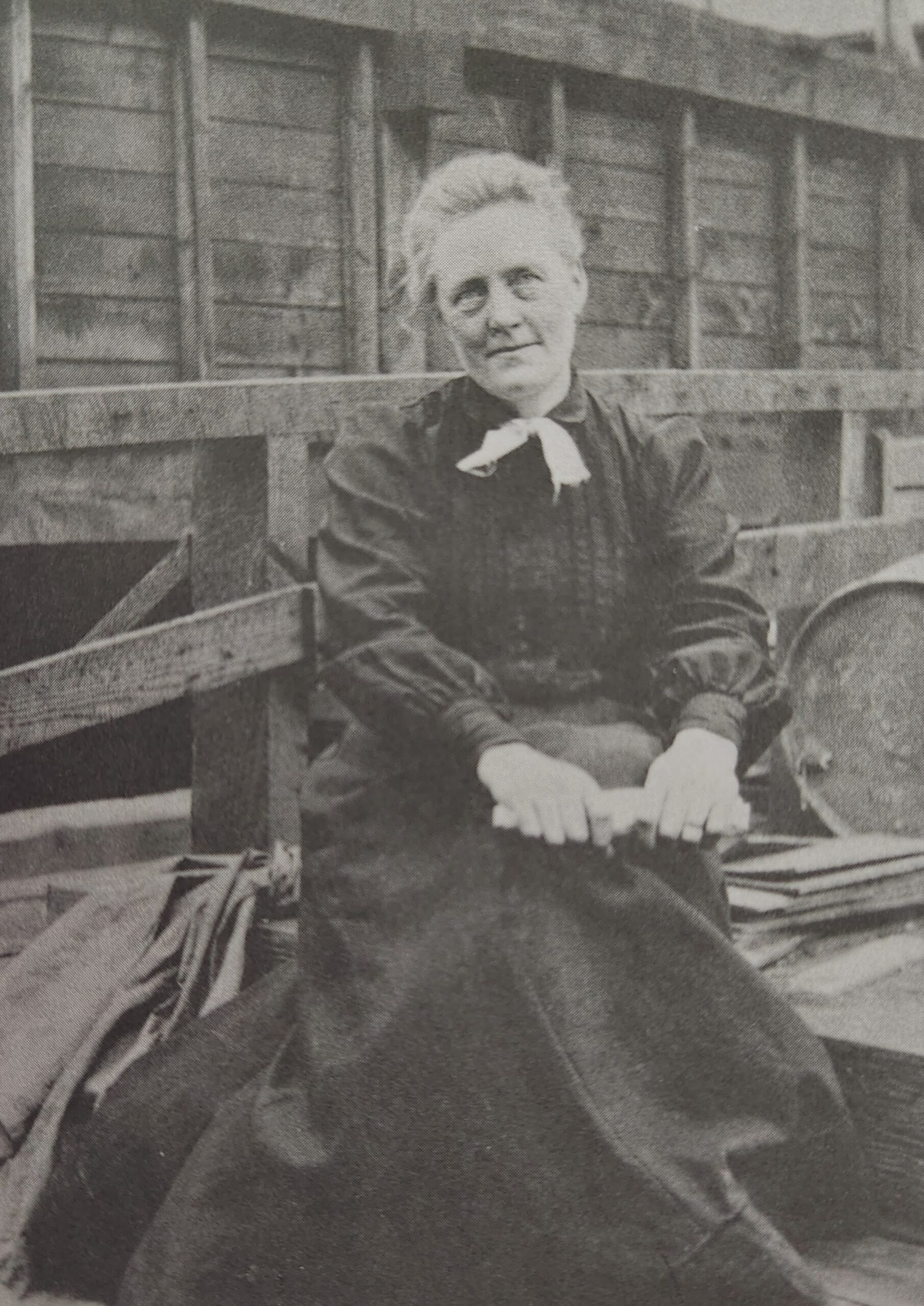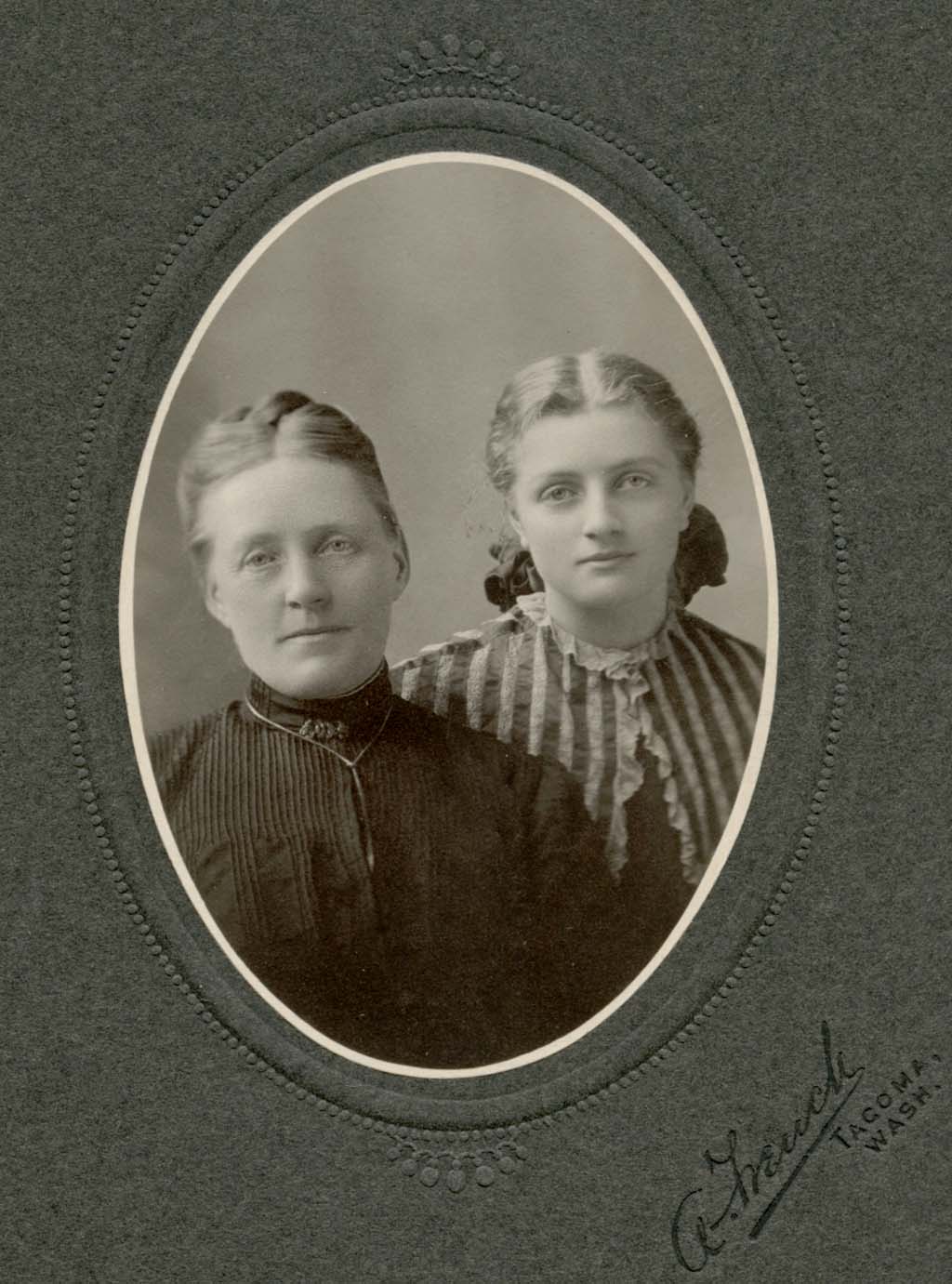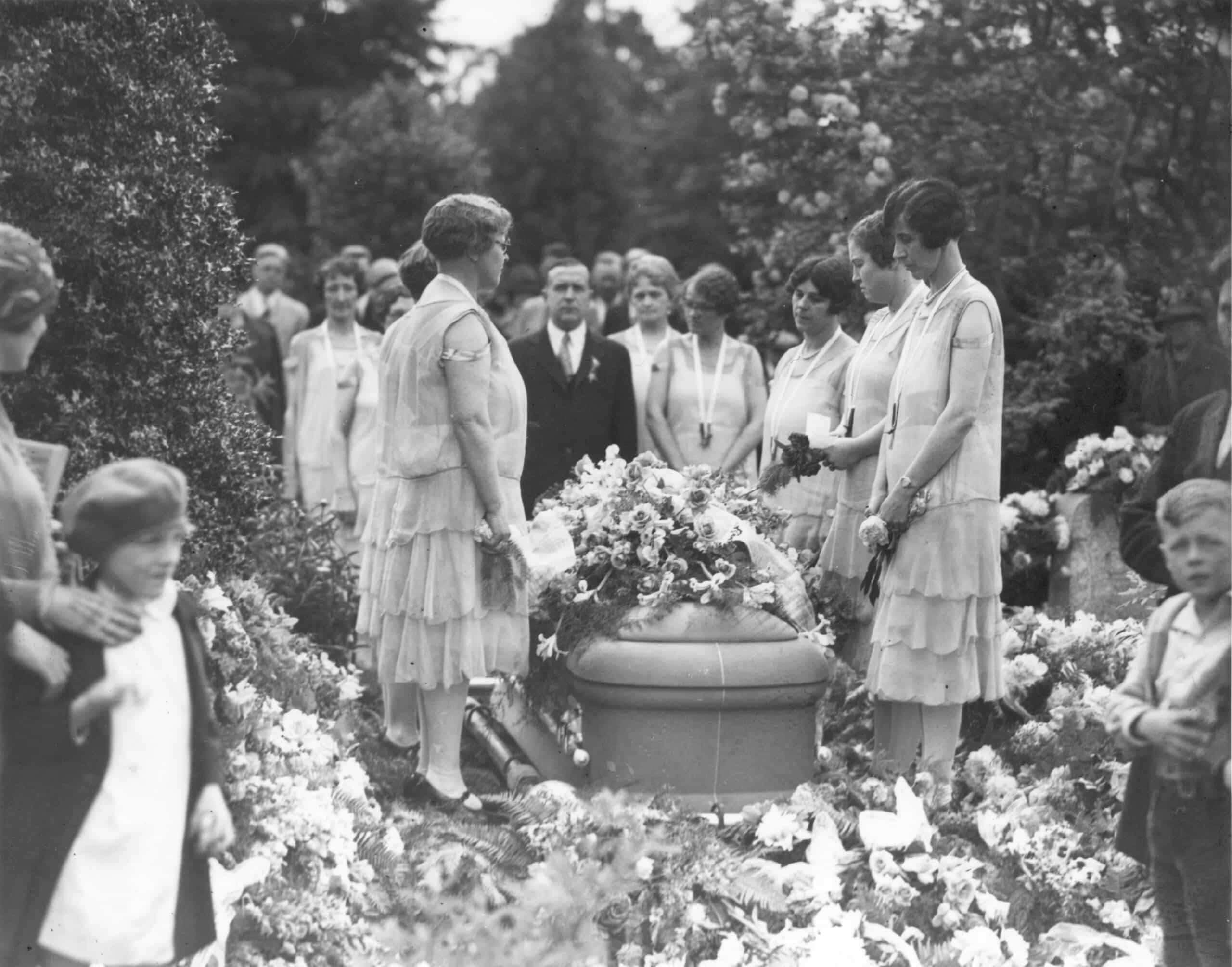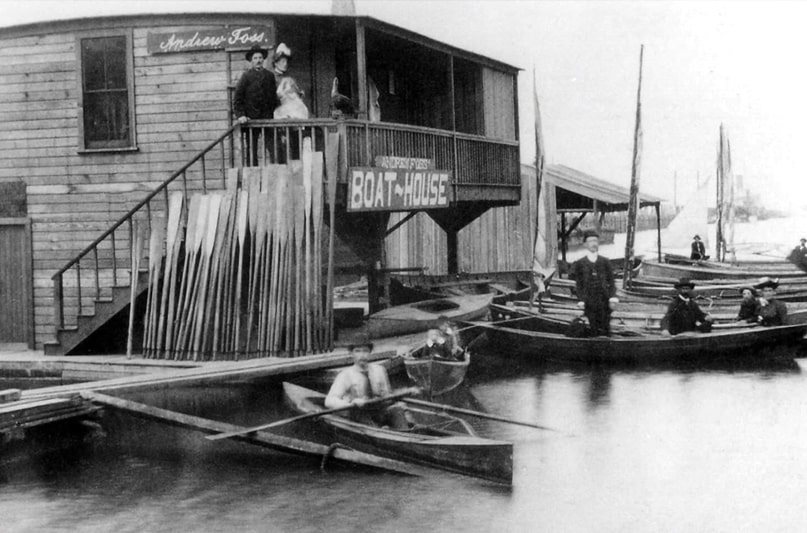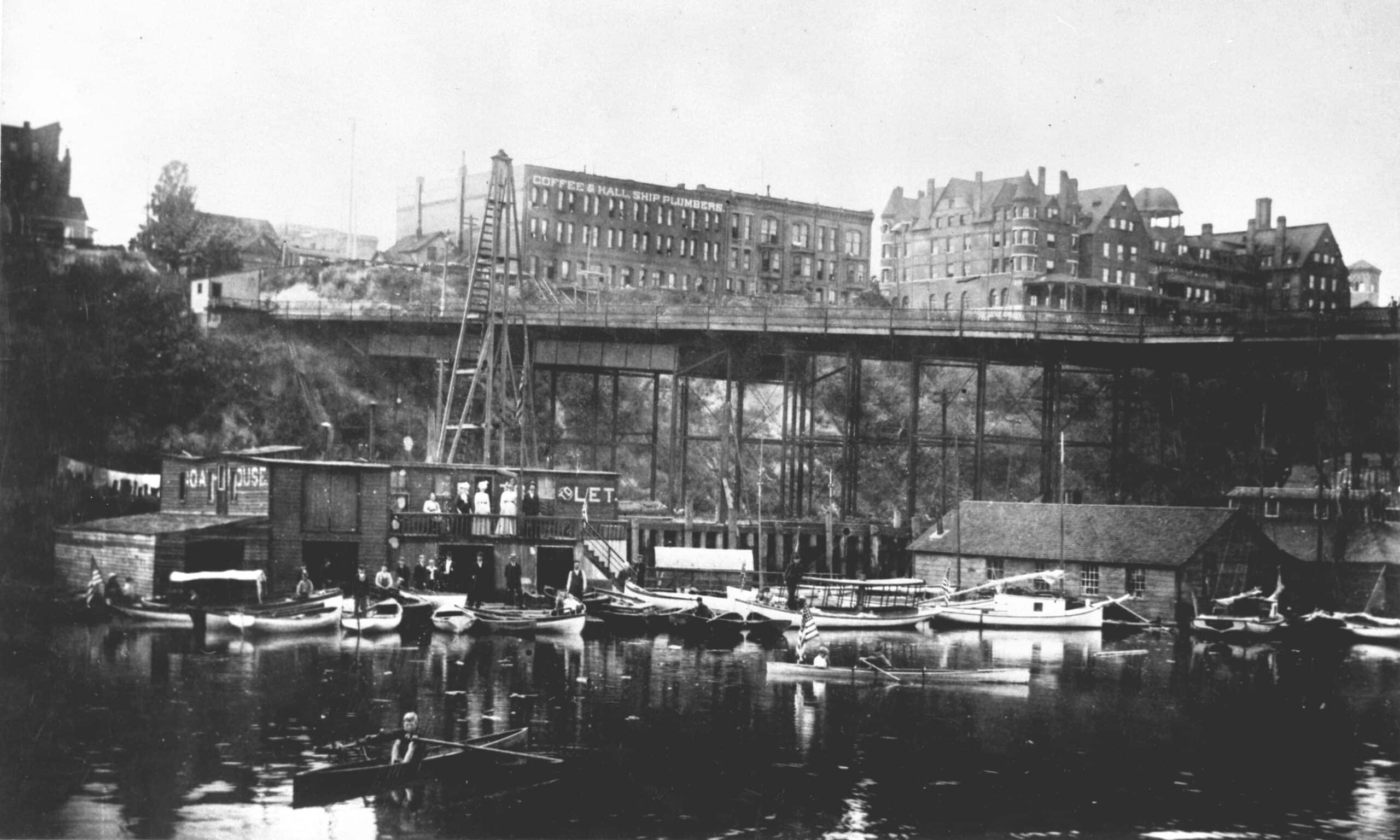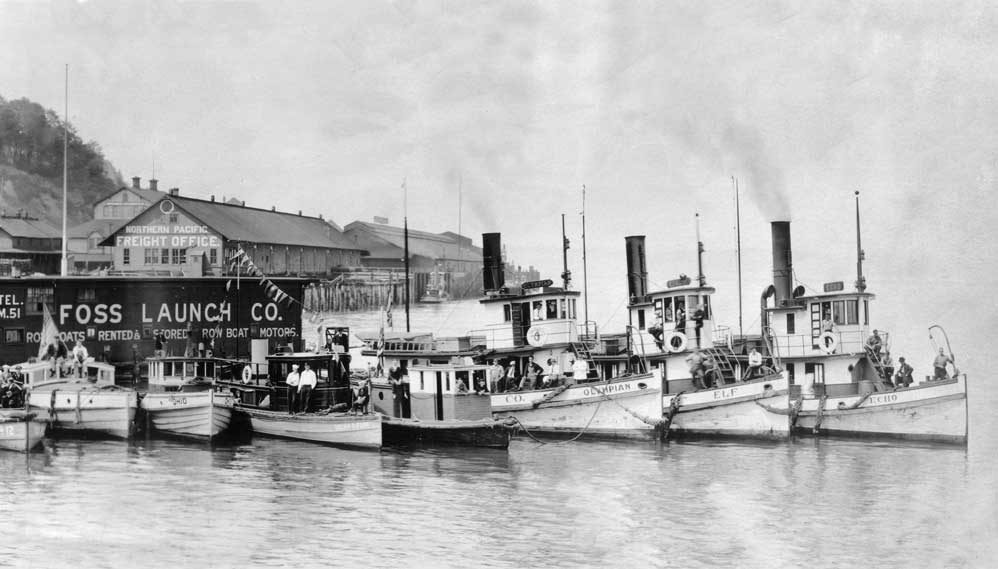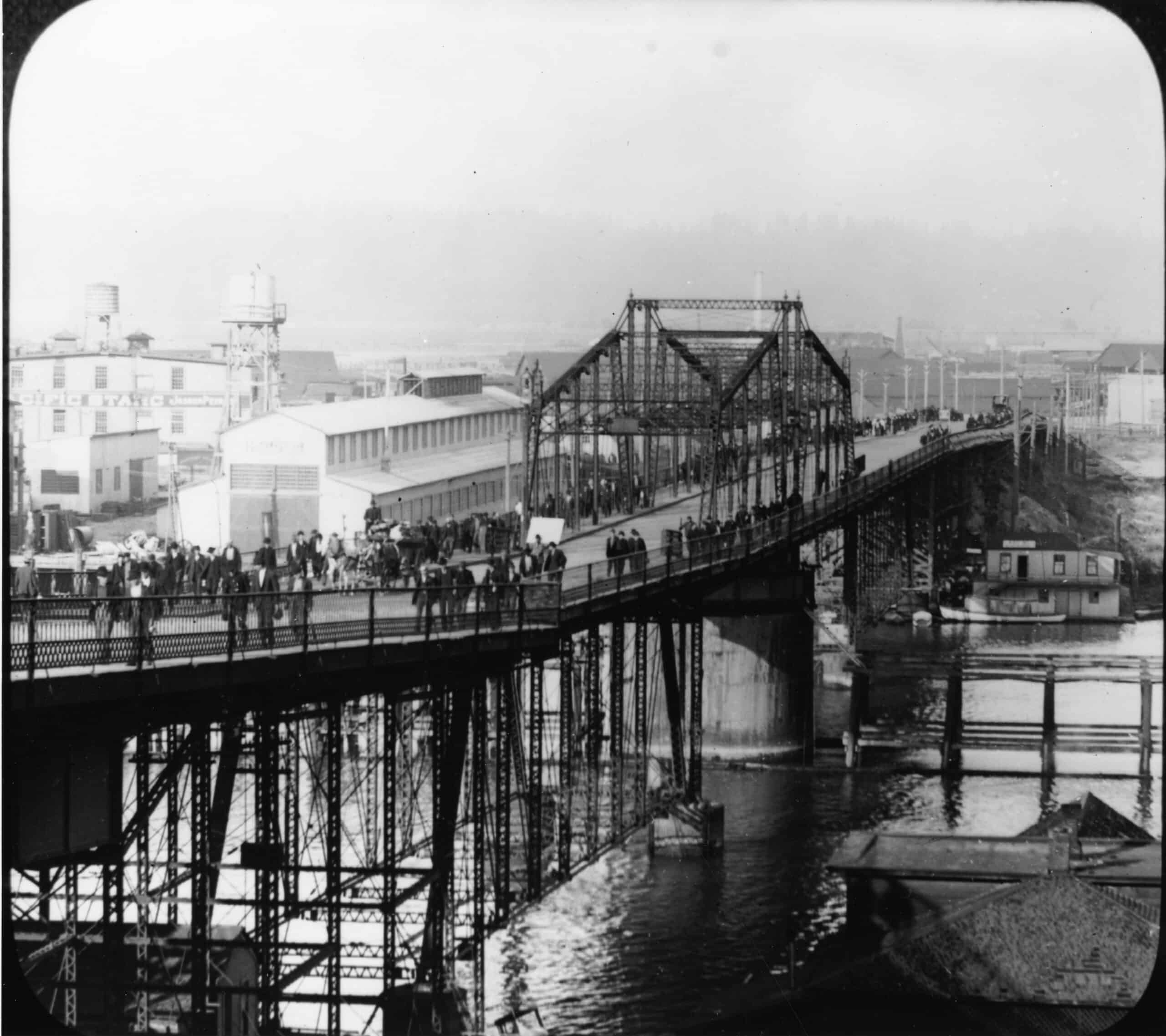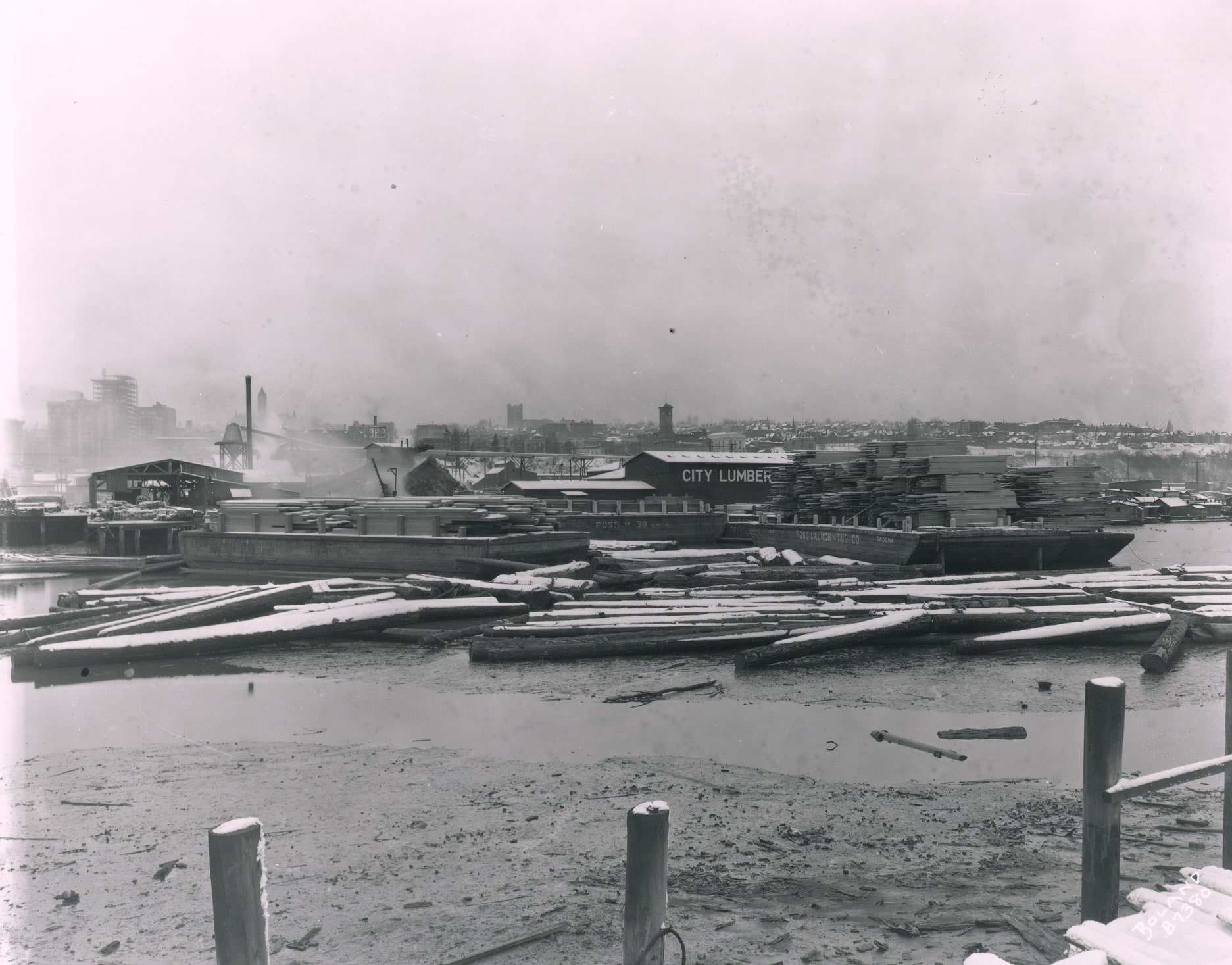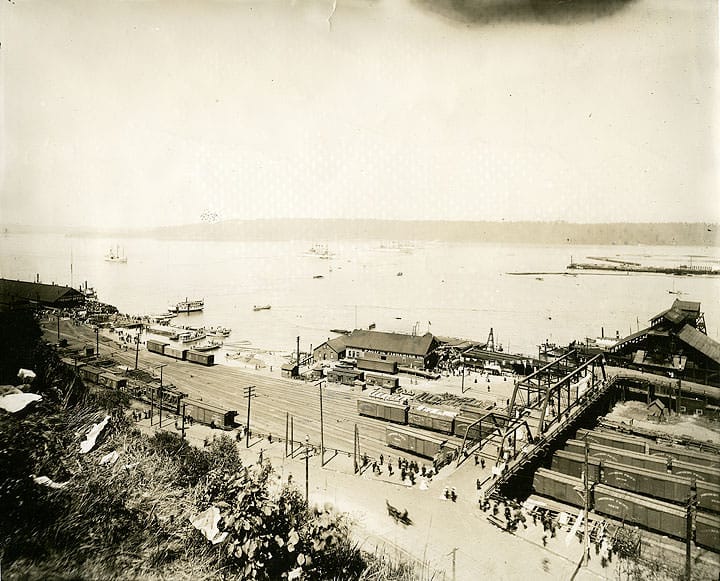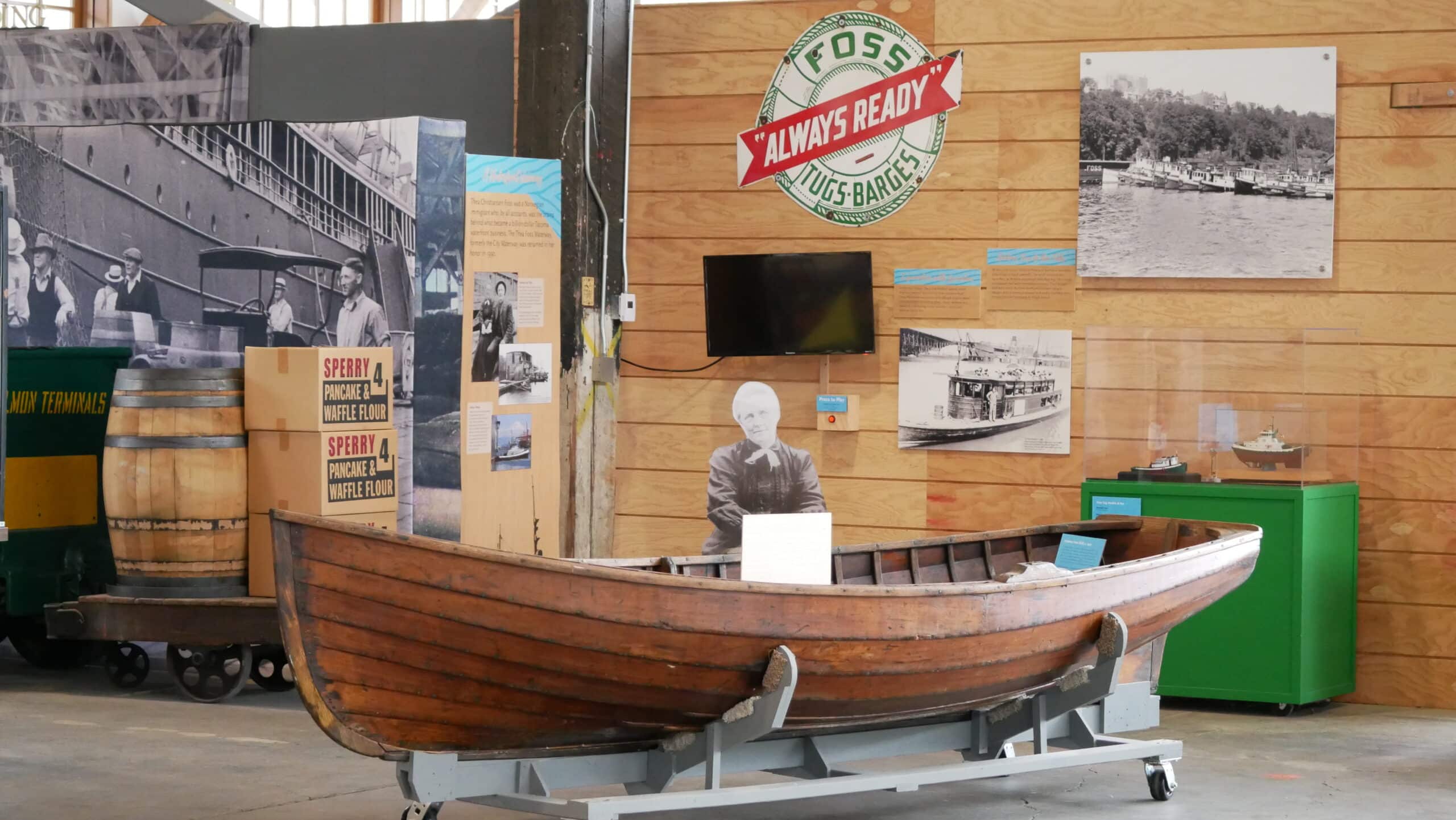“I desired to be an American like everyone, but how proud I am now of having Norwegian ancestry of the first generation in this country, having had the experience of knowing these hearty early people, their struggle for raising a family on 25 cents per hour, a 10-to-12-hour work day, so that the home life really meant working, eating and sleeping for six days, and going to church on the seventh.” – Henry Foss, A Mother Molds
Thea Christiansen was born June 8, 1857, in a village not far from Oslo, Norway. She grew up in a maritime community where she met her older sister’s brother-in-law, a carpenter and boatbuilder named Andreas Oleson.
In 1878, Thea and Andreas became engaged, and they planned to move to America together. They didn’t have enough money to pay both passages, so Andreas moved first and worked as a carpenter. However, once he had finally raised enough funds for Thea’s ticket, she sent Andreas’ brother instead. Thea had decided to earn her own way. After also sending Andreas’ sister, Thea finally funded her own trip and arrived in St. Paul, Minnesota, in 1881.
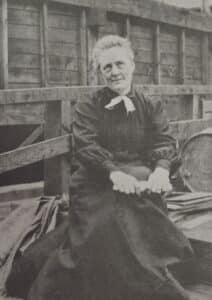
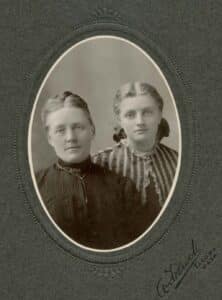
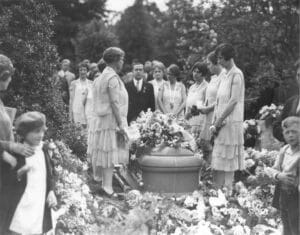
Many immigrants changed their names upon arrival in America, and so did the Olesons, choosing the name to Fossen to better distinguish themselves from the other Ole Sons in St. Paul. Later, the name was shortened to Foss, and Andreas became Andrew.
Missing the coastal environment of Norway, the Foss family planned a move to the growing city of Tacoma in the Washington Territory, already a gathering space for Norwegian immigrants. Andrew left to make a home for their growing family on the west coast, and Thea followed with their children Arthur, Wedell, and their newborn daughter Lillian in 1889. By the time the rest of his family arrived, Andrew had built a houseboat on the Tacoma waterfront out of spare wood and driftwood, and the five family members moved into the simple, floating box of a house.
Thea, who was afraid of water and disliked living on a houseboat, soon contracted typhoid fever and was bedridden for two months. A generous doctor cared for her without charge and, once she was recovered, Andrew left to build a house near Purdy. It was during this time that Thea started the legendary family company bearing her name.
While Andrew was away, Thea bought a beaten-up rowboat from a fisherman for $5, the rough equivalent of $160 today. She cleaned the boat, painted it white and green, and sold it for $10. Then she did it again. By the time Andrew returned, Thea had a fleet of rowboats and was renting them for 50 cents a day to anyone who wanted to get around the Tacoma waterfront.
Henry Foss, Thea and Andrew’s last child, was born in 1891. By this time, the Fosses had more than 200 rowboats. The family built a two-story building with boat storage, as well as a three-story family home, right on the Tacoma waterfront. The slogan of the Foss family business, coined by Thea, was “Always Ready,” reflecting their commitment to the community. The business became known for the family’s consistent availability and incredible customer service.
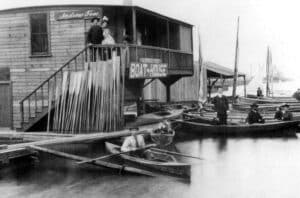
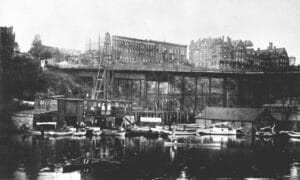
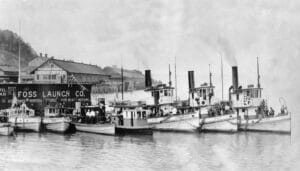
Throughout the 1890s, Tacoma grew rapidly as a port city. “What this really meant to Mother Foss was to put her into contact with a multitude of businessmen who were continually coming and going and was her ability to find a common ground with all these different businessmen and captains who gave her a great prominence in those days,” wrote Thea’s son Henry Foss in a two-page memorial about his mother.
“One must be able to visualize an immigrant girl living on the waterfront with a small family, being able to conjure into her mind the necessities and requirements for the association with such divergent individuals, characters, and personalities,” he continued. “However, she did this with an aplomb that would do credit to a diplomat.”
Henry also recalled Thea’s legendary hospitality: “One of her winning facets of friendship with these foreign folk was the friendly cup of coffee. Always in her kitchen there was a gallon can of coffee brewing—it was, as I remember, hardly ever cold and was available 24 hours a day.” Thea wrote in a 1907 diary entry, “The law imprinted in all men’s hearts is to love one another. I will look to the whole world as my Country and all men as my brothers. We are made for cooperation and to act against one another is to act contrary to nature.”
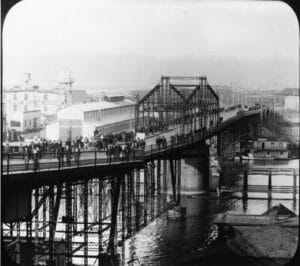
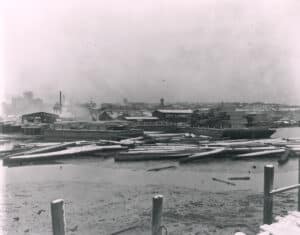
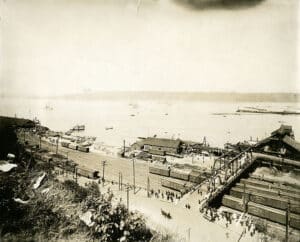
Thea and her daughter Lillian cooked every day for as many as 30 workers who maintained and rowed the Foss boats, many of whom were Norwegian immigrants themselves. In time, the Fosses moved away from rowboats and began using motorcraft. Their first powerboat was a two-horsepower “naphtha launch,” barely larger than a rowboat.
The family came up with clever and generous ways to attract new customers, and as the children grew, they began to participate in the business. Arthur left school after eighth grade to join the family business. Wedell and Henry also became involved in management and studied at the University of Washington and Stanford University, respectively.
Over time, the Foss Maritime Company’s business expanded from rowboats and small powerboats to tugs and towboats. Responsible for moving a vibrant flow of commerce through Commencement Bay, they became very successful. Their largest vessels were named for the children of Andrew and Thea.
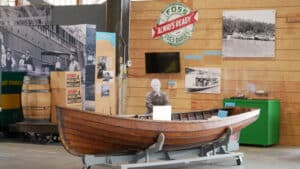
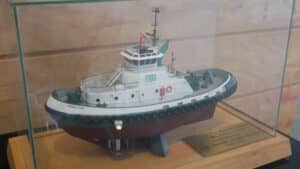
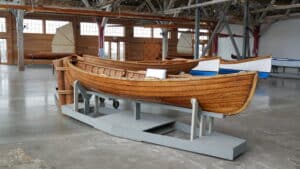
Thea Foss died on June 7, 1927, the day before her 70th birthday. One of the biggest parades ever seen in the city passed through Tacoma, and a water parade of Foss vessels motored through the City Waterway, which would be renamed for Thea Foss in 1989. Andrew died one week later.
Thea was well-remembered in the Tacoma community, where her impact continues to be felt. The Foss Maritime Company, started from a $5 rowboat, is the largest towing and tug business on the West Coast. They still proudly use Thea’s “Always Ready” slogan.
Special thanks to HistoryLink and the Northwest Room of the Tacoma Public Library for their research efforts. If you liked this story, you might enjoy other stories about Women on Washington’s Working Waterfronts. Hear from Anita Luvera about the work it took to outfit a fishing fleet as a young woman, or hear from tugboat captain Katrina Anderson about what it’s like being the captain of a modern Foss vessel.


